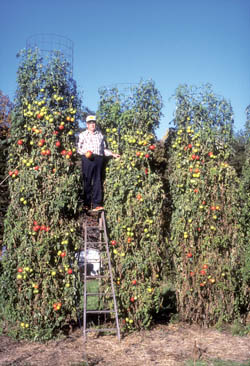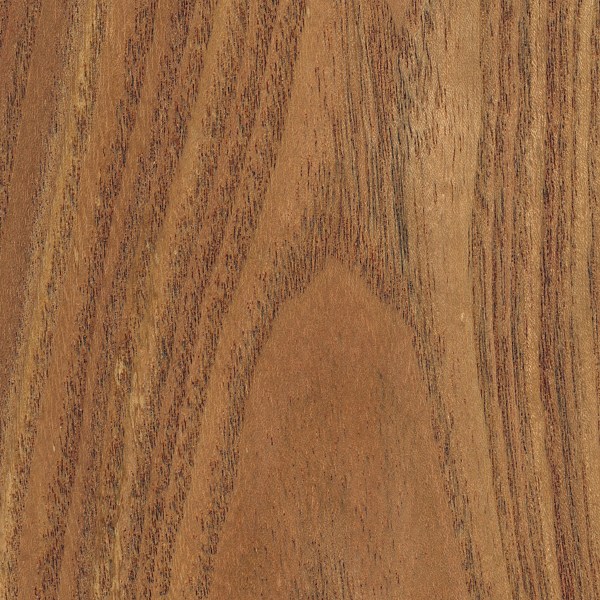

|
A garden is only as good as the ground that it's planted in. Discussion forum for the many ways to improve the soil where we plant our gardens.
|
 |
|
|
Thread Tools | Display Modes |
|
|
#16 |
|
Tomatovillian™
Join Date: Feb 2013
Location: Tomball, Texas
Posts: 4
|
Interestingly, I'm reading a book now about how to grow world record tomatoes. And Charles Wilbur, who holds a number of Guiness records for growing veggies, particularly tomatoes, uses kudzu in his compost mix. It can't be all bad.

|
|
|

|
|
|
#17 |
|
Tomatovillian™
Join Date: Dec 2010
Location: Pewaukee, Wisconsin
Posts: 3,149
|
A very good read too. He made me wish that I had some Kudzu around. It sounds like great stuff for the garden.
__________________
~ Patti ~ |
|
|

|
|
|
#18 |
|
Tomatovillian™
Join Date: Apr 2016
Location: Dallas, TX
Posts: 3,825
|
If you can't find kudzu locally, you might want to grow your own. Here's some advice:
http://www.walterreeves.com/how-to-a...to-grow-kudzu/ "DECIDING WHEN TO PLANT: Kudzu should always be planted at night. If kudzu is planted during daylight hours, angry neighbors might see you ... "SELECTING THE PROPER FERTILIZER: The best fertilizer I have discovered for kudzu is 40 weight non-detergent motor oil. Kudzu actually doesn’t need anything to help it grow, but the motor oil ... cuts down on friction and lessens the danger of fire when the kudzu really starts to move"
__________________
Stupidity got us into this mess. Why can't it get us out? - Will Rogers |
|
|

|
|
|
#19 |
|
Tomatovillian™
Join Date: Sep 2015
Location: south carolina
Posts: 562
|
I'm glad you found another use for kudzu, Scott.
For all of y'all that don't have it, trust me, you don't want it! There's a reason it's nickname is the vine that ate the south! Once it's there it's almost impossible to get rid of and it literally takes over! A good way to "make lemonade with lemons". |
|
|

|
|
|
#20 |
|
Tomatovillian™
Join Date: Feb 2007
Location: N.C.
Posts: 1,827
|
Too funny dm!!
Look at that picture!!!! omg!! I'll be looking around for it. So far I've only seen it on the side of the highway. Greg |
|
|

|
|
|
#21 |
|
Tomatovillian™
Join Date: Feb 2006
Location: Den of Drunken Fools
Posts: 38,539
|
They say it is in Travis county next to my county and maybe even in my county I have no idea where but I dont want it on my place.
Yet one more transplant disaster from Asia. The back side of my property is getting covered in Chinaberry trees. |
|
|

|
|
|
#22 |
|
Tomatovillian™
Join Date: Jul 2015
Location: North Carolina
Posts: 880
|
I composted some of it a couple years ago. I needed some greens for compost pile and there were no grass clippings to be had, very hot and dry so no grass to mow. My daughter lives way out in the country and is surrounded by kudzu. I collected a truck load, removed all seed pods and chopped it up. Pile heated up quickly and was finished in just a few weeks.
It was good compost but not worth the effort. My maters didn't grow like Wilbur's surprise surprise lol. Of course I didn't expect them to. I seriously doubt his giant plants are a result of the kudzu. Just my opinion 
|
|
|

|
|
|
#23 |
|
Tomatovillian™
Join Date: Apr 2016
Location: Dallas, TX
Posts: 3,825
|
Control methods for Chinaberry, aka Melia azedarach
https://www.invasive.org/library/FLF...hinaberry.html "Control Methods
Triclopyr product, such as Brush-B-Gon®, is available in local garden and hardware stores."
__________________
Stupidity got us into this mess. Why can't it get us out? - Will Rogers |
|
|

|
|
|
#24 | |
|
Tomatovillian™
Join Date: Feb 2006
Location: Den of Drunken Fools
Posts: 38,539
|
Quote:
The heart wood is beautiful and kin to the mahogany. 
|
|
|
|

|
|
|
#25 |
|
Tomatovillian™
Join Date: Jun 2011
Location: Louisiana
Posts: 587
|
I read that book years ago. I was wondering how much his Kudzu compost contributed to his amazing success. Alfalfa has similar qualities and is easily available everywhere in various forms. It might make an interesting substitute for those not in Kudzu lands.
|
|
|

|
|
|
#26 |
|
Tomatovillian™
Join Date: Jan 2006
Location: S. FLorida / Zone 10
Posts: 369
|
I have carefully read ‘How to Grow World Record Tomatoes’ by Charles Wilber many times. If kudzu was in my backyard I would love to collect it, chop it up, and cook it into submission in my compost pile. I’d even do it for a measly 100 pounds of tomatoes per plant, far short of Wilber’s 342 pounds. Mr. Wilber does give high nitrogen substitutes if you live in kudzu-free area.
The kudzu compost is just one component of an entire system. He is very exacting in his methods—from producing the compost to setting and growing the plants. Mr Wilber is a stern taskmaster and he gives all his secrets in the hope that his reader can match or surpass his documented achievements (1,368 pounds of tomatoes on 4 plants or a 27 foot tall cherry tomato, etc.).
__________________
"When we kill off the natural enemies of a pest we inherit their work." Carl Huffaker Last edited by MsCowpea; September 27, 2018 at 02:56 AM. |
|
|

|
|
|
#27 |
|
Tomatovillian™
Join Date: Jul 2011
Location: Atlanta, Georgia
Posts: 2,593
|
You can grow it. Here are directions:
HOW TO GROW KUDZU by Tifton B. Merritt All you beginning gardeners out there might want to consider growing kudzu as a fine way to launch out into the great adventure of gardening. Kudzu, for those of you not already familiar with it, is a hardy perennial that can be grown quite well by the beginner who observes these few simple rules. CHOOSING A PLOT: Kudzu can be grown almost anywhere, so site selection is not the problem it is with some other finicky plants like strawberries. Although kudzu will grow quite well on cement, for best results you should select an area having at least some dirt. To avoid lawsuits, it is advisable to plant well away from your neighbor’s house, unless, of course, you don’t get along well with your neighbor anyway. PREPARING THE SOIL: Go out and stomp on the soil for a while just to get its attention and to prepare it for kudzu. DECIDING WHEN TO PLANT: Kudzu should always be planted at night. If kudzu is planted during daylight hours, angry neighbors might see you and begin throwing rocks at you. SELECTING THE PROPER FERTILIZER: The best fertilizer I have discovered for kudzu is 40 weight non-detergent motor oil. Kudzu actually doesn’t need anything to help it grow, but the motor oil helps to prevent scraping the underside of the tender leaves then the kudzu starts its rapid growth. It also cuts down on friction and lessens the danger of fire when the kudzu really starts to move. Change oil once every thousand feet or every two weeks, whichever comes first. MULCHING THE PLANTS: Contrary to what you may be told by the Extension Service, kudzu can profit from a good mulch. I have found that a heavy mulch for the young plants produces a hardier crop. For best results, as soon as the young shoots begin to appear, cover kudzu with concrete blocks. Although this causes a temporary setback, your kudzu will accept this mulch as a challenge and will reward you with redoubled determination in the long run. ORGANIC OR CHEMICAL GARDENING: Kudzu is ideal for either the organic gardener or for those who prefer to use chemicals to ward off garden pests. Kudzu is oblivious to both chemicals and pests. Therefore, you can grow organically and let the pests get out of the way of the kudzu as best they can, or you can spray any commercial poison directly onto your crop. Your decision depends on how much you personally enjoy killing bugs. The kudzu will not be affected either way. CROP ROTATION: Many gardeners are understandably concerned that growing the same crop year after year will deplete the soil. If you desire to change from kudzu to some other plant next year, now is the time to begin preparations. Right now, before the growing season has reached its peak, you should list your house and lot with a reputable real estate agent and begin making plans to move elsewhere. Your chances of selling will be better now then they will be later in the year, when it may be difficult for prospective buyer to realize that beneath those lush, green vines stands an adorable three-bedroom house. http://www.walterreeves.com/how-to-a...to-grow-kudzu/ |
|
|

|
|
|
#28 |
|
Tomatovillian™
Join Date: Jan 2006
Location: S. FLorida / Zone 10
Posts: 369
|
Scott in Atlanta, I already read that link in the beginning of the thread. Ha ha. I know it is terribly invasive and luckily it’s not in my area—if it was I would use it in my compost. (We do have the awful air potato but it is not a legume, so no high nitrogen). Wilber shreds it and then composts with other ingrdients. He also gives substitutes in case you have no access to kudzu. One of them is alfalfa. I am a huge fan of Charles Wilber’s book. Does Atlanta have kudzu taking over roadsides and parks? Have you ever thought of using kudzu in your compost or do you feel it is too dangerous for you to successfully contain?
__________________
"When we kill off the natural enemies of a pest we inherit their work." Carl Huffaker |
|
|

|
|
|
#29 |
|
Tomatovillian™
Join Date: Jul 2011
Location: Atlanta, Georgia
Posts: 2,593
|
yes - see the first post!
|
|
|

|
|
|
#30 |
|
Tomatovillian™
Join Date: Jan 2006
Location: S. FLorida / Zone 10
Posts: 369
|
Oops, sorry about that Scott. Didn’t remember you were OP and into kudzu already.
Were you able to increase your yields with your kudzu compost? Wilber’s achievements boggles the mind. Wilber also uses cow manure in his compost. Years ago we tried to wilberize our compost. Upon enquiring about getting some cow manure we got permission to go into a large covered enclosure—no nice little cow patties to collect, just liquidy slop with huge cows lumbering all about us. That didn’t work out at all. Though it is definitely not his first choice I did take Wilber’s advice and used alfalfa hay and horse manure and it cooked up the manure like it was on a stove. I was compost novice then and stunk up the whole cul de sac. I am still into that combination and it makes good compost but I did move.
__________________
"When we kill off the natural enemies of a pest we inherit their work." Carl Huffaker |
|
|

|
 |
|
|
